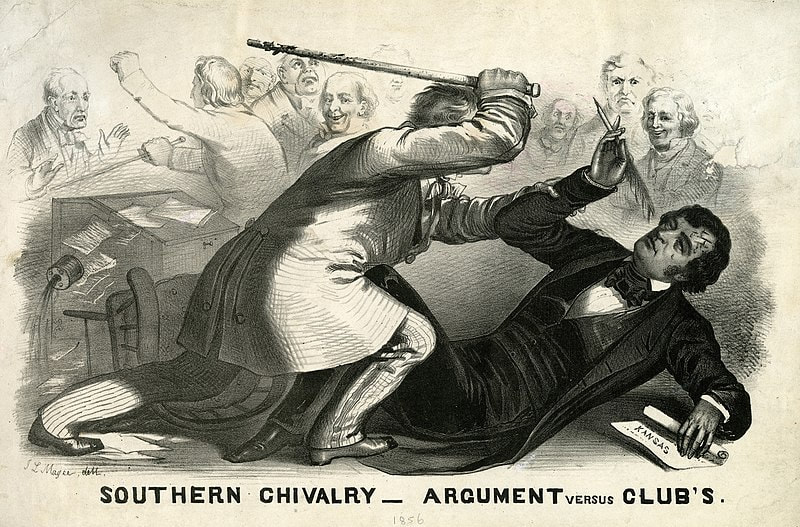|
If asked the cause of the Civil War in one word, I’d have to name slavery. South Carolina declared independence after Lincoln’s election as president, “whose opinions and purposes are hostile to slavery.” According to its Declaration of Secession, the 1860 election culminated 25 years of “increasing hostility on the part of the non-slaveholding States to the institution of slavery.” Although the immediate trigger to cannon fire a few months later involved a state’s right to secede, that issue arose from the South’s commitment to slavery.
One-word answers are for promoting an agenda, not for exploring history. Cause-and-effect narratives are rarely so simple. Causes of resentment between the agricultural South and the increasingly industrial North were as old as the Republic. Then as now, states that feared or resented control by national majorities have claimed states’ rights on policies from tariffs and slavery to marijuana, abortion, and guns. Article VI of the U.S. Constitution makes federal law supreme over any conflicting state law. The Tenth Amendment reserves to the states any powers not given the federal government. Between the two, “states’ rights” can mean almost anything. Curiously, while we tend to associate states’ rights with the South, it was northern states that claimed a right to nullify the Fugitive Slave Act of 1850. The act required northerners to return people fleeing slavery and punished anyone who helped them. South Carolina’s Declaration of Secession names thirteen northern states that “have enacted laws which either nullify the Acts of Congress or render useless any attempt to execute them. In many of these States the fugitive is discharged from service or labor claimed, and in none of them has the State Government complied with the stipulation made in the Constitution.” In other words, when it came to preserving slavery, northern states had no rights in the face of conflicting federal law. No, friends, states’ rights weren’t even a secondary cause of the Civil War. They were only an excuse when they happened to favor slavery. Image: John Magee, “Southern Chivalry – Argument versus Clubs,” lithograph, 1856. Preston Brooks (SC) beats Charles Sumner (MA) over slavery in the U.S. Senate chamber.
0 Comments
Leave a Reply. |
AuthorI'm a historian who writes novels and literary nonfiction. My home base is Madison, Wisconsin. Archives
July 2024
|

 RSS Feed
RSS Feed